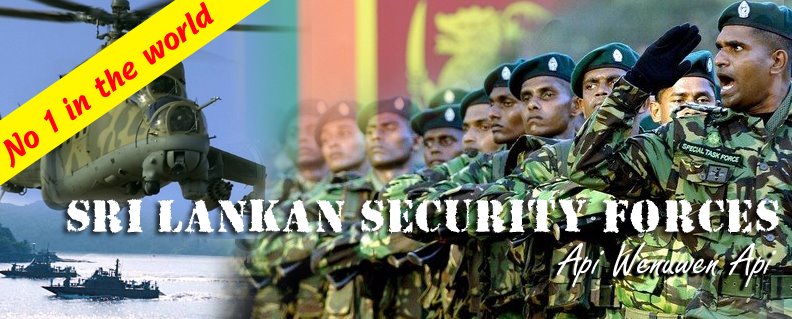Committing acts of terrorism and other forms of violence
Engaging in armed conflict with the Security Forces and the Police
Threatening the sovereignty and territorial integrity of the Republic
Aim of establishing a separate state in the Northern and Eastern parts of Sri Lanka
Rasika SOMARATHNA
The Government said yesterday that the Cabinet had taken a unanimous decision, in accordance with a memorandum submitted by President Mahinda Rajapaksa, to proscribe the Liberation Tigers of Tamil Ealam(LTTE), which continued to engage in blatant human rights violations.
At a media briefing yesterday evening which was attended by several Cabinet Ministers, Minister Maithripala Sirisena noted that the Cabinet had taken the decision as repeated requests to the aforesaid organization to eschew terrorism and participate in the democratic process had failed.
Minister Nimal Siripala De Silva on the occasion said that the LTTE continued to recruit children and women against their will, and also kept denying free movement to civilians using them as a human shield, leaving no option for the Government but to go for a ban.
He further said that the proscription did not mean that the Government had closed the door for negotiations, but would engage in dialogue if the LTTE comes to the table after laying down weapons.
Minister Mahinda Samarasinghe urging the LTTE to release trapped civilians in Vanni emphasized that Sri Lanka with this action had re-iterrated it's call to international community to condemn using civilians as a human shield.
He further said that the Government would continue to provide all possible assistance to civilians who are been forcibly kept by the LTTE.
Minister of Foreign Affairs Rohitha Bogollagama emphasised that the the Government's action had portrayed that Sri Lanka continued to play a crucial role in the world agenda in combating the menace of terrorism.
He also added that 32 countries had banned the LTTE and the Government decision to proscribe the outfit would further hinder it's capability to garner support locally as well as internationally for their terror acts.
Defence spokesman Minister Keheliya Rambukwella on the occasion emphasised that Sri Lanka had formally joined the world order in effectively contributing to dismantle the infrastructure of terrorism.
He further said that the President had given the Tigers several ultimatums before imposing the ban with the latest coming as a warning on New Year eve to either free civilians held in bondage in north or face a ban.."Failure to do this would lead to the government proscribing the LTTE with all its consequences for the terrorist organisation," he warned after a Cabinet meeting the Minister said.As the Tigers had failed to heed the call the Government had taken this decision, the Minister added. It would provide effective support by laws coming into effect where any organization or individual convicted of helping the banned LTTE could face up to 20 years of imprisonment.
The LTTE was first banned in 1998, after it bombed the Dalada Maligawa. The ban was lifted in September, 2002, ahead of the peace talks following the Ceasefire Agreement. The LTTE had insisted that the ban should be removed before it could consider participation in peace talks. The Proclamation of the President proscribing the Liberation Tigers of Tamil Eelam (LTTE) under Chapter 40 of the Public Security Ordinance gave several reasons for the proscription.
They included inter alia committing acts of terrorism and other forms of violence, with the aim of establishing a separate state of Tamil Eelam in the Northern and Eastern parts of Sri Lanka, engaging in armed conflict with the Security Forces and the Police, assassination of persons of high political office, members of the security forces and the Police and civilians, causing death and destruction to lives and property, threatening the sovereignty and territorial integrity of the Republic, failure to eschew violence, lay down arms and, surrender and participate in the democratic process, keeping civilians in the North and East as hostages and using them as human shields, preventing humanitarian relief reaching the population, illegal procurement and smuggling of arms, using child soldiers, and adversely affecting international and regional peace.
Courtesy - Daily News








No comments:
Post a Comment